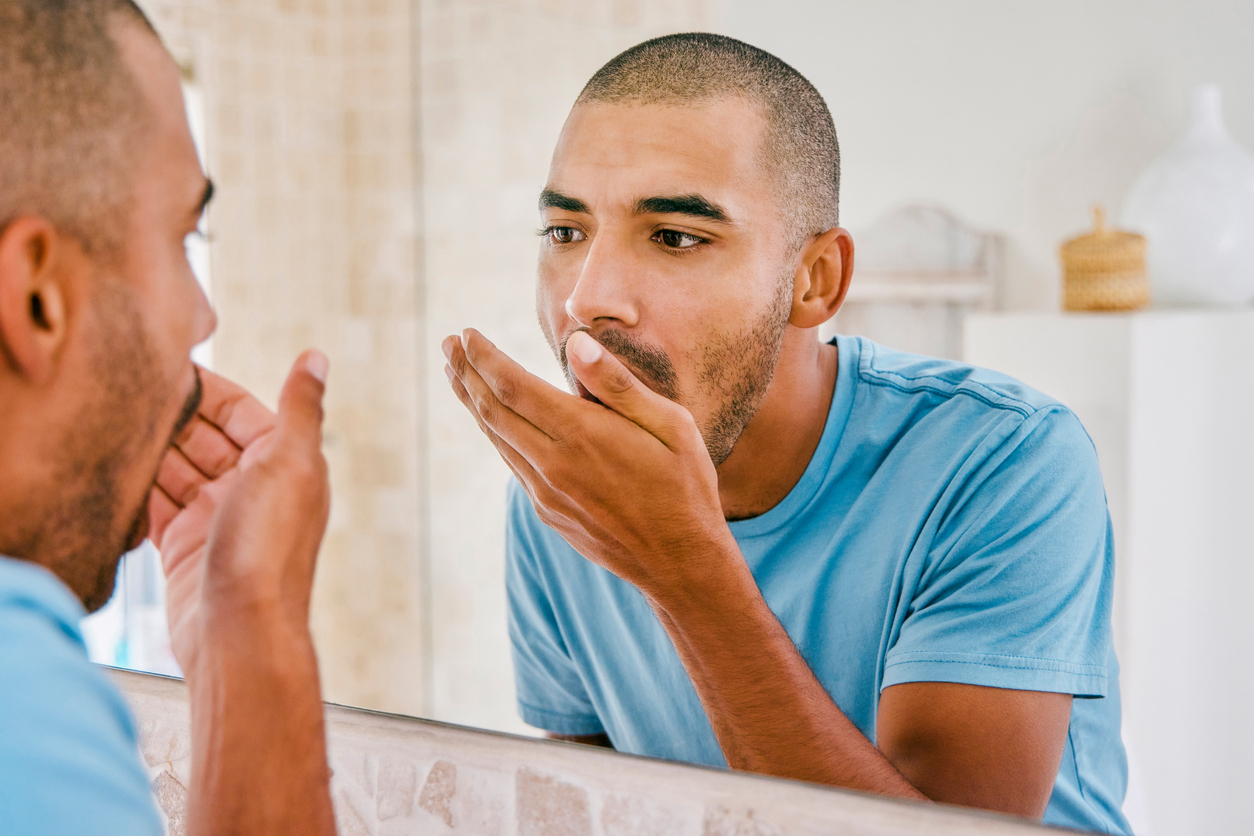
One of the most common concerns of CCCRD patients is bad breath, also known as malodor or halitosis. Approximately 25% of people suffer from the condition, which has many social implications affecting confidence and self-esteem.
Fortunately, as discussed by RDH Mag, dental probiotics provide a better way to beat bad breath. Let’s look at what causes the issue, what probiotics are, and how dental probiotics can help you win the battle against bad breath.
Bad breath has several causes
Poor oral hygiene is the most common and easily remedied cause of bad breath. It causes plaque buildup, which can calcify over time, creating tartar and perpetuating the buildup cycle. This cycle can lead to gingivitis and periodontal disease, causing bad breath.
However, there are many other causes of bad breath, including the following:
- Low saliva flow
- Eating an acidic diet
- Inconsistent professional dental care
- High-sugar diet
- The Keto diet
- Dry mouth
- Old dental work, such as fillings and crowns
- Not flossing
- Underlying medical conditions, such as sinus infections and gastric reflux
- Not drinking enough water
Over-the-counter dental products for halitosis focus only on masking the odor, although some attempt to kill oral cavity bacteria. However, because bacteria repopulate quickly, the relief from bad breath is generally temporary.
Something else to consider is that your body naturally contains both good and bad bacteria. When a bacterial population is reduced, other bacteria always replace it; this is where dental probiotics provide the necessary innovation to treat bad breath.
Probiotics are healthy bacteria for gut support
Probiotics are live bacteria and yeasts that keep your stomach healthy. Probiotic supplements replace good bacteria when your body is out of balance, such as after taking antibiotics. Additionally, probiotics help send food through your body by affecting nerves that control gut movement.
Some common conditions assisted by probiotic supplements include:
- Irritable bowel syndrome
- Inflammatory bowel disease (IBD)
- Infectious diarrhea (caused by viruses, bacteria, or parasites)
- Diarrhea caused by antibiotics
- Skin conditions, such as eczema
- Urinary and vaginal health
- Preventing allergies and colds
- Oral health
Dental probiotics specifically target bad breath bacteria
It is important to note that dental probiotics are entirely different from the many types of probiotics that encourage optimal digestion. Specifically, the Streptococcus salivarius strains K12 and M18 are the most effective in combating bad breath.
Another difference is that stomach probiotics come in capsule or liquid form, so they can quickly reach the stomach. However, oral probiotics are generally a tablet that is chewed or sucked on after routine oral care. The benefit of using a tablet is longer exposure time compared to other methods for increased effectiveness.
Some notable benefits of dental probiotics include the following:
- Dental probiotics encourage the growth of good bacteria in your mouth while reducing the growth of harmful bacteria
- Emerging research has shown that 85% of people who took oral probiotics for one week experienced a significant reduction in the compounds that cause bad breath
- The majority of study participants maintained a reduced level of bad breath bacteria for two weeks following exposure to oral probiotics
- They treat other conditions such as gingivitis, periodontitis, pharyngitis, tonsillitis, and oral candidiasis
- Easy-to-use home care
- Reduced plaque formation
- Increased oral pH
- Significantly reduced plaque, gingival inflammation, bleeding, and pocket depth
- Substantial benefits to patients who have ongoing issues with oral hygiene due to their ability level
Talk to us about dental probiotics for better breath
Bad breath can hold you back from living your life to the fullest. Science is revealing that by promoting the growth of good bacteria with dental probiotics, we have a new way to combat offending odors and further improve oral health. If you have questions about how dental probiotics can help, contact us or ask during your next appointment with Dr. Rink!

